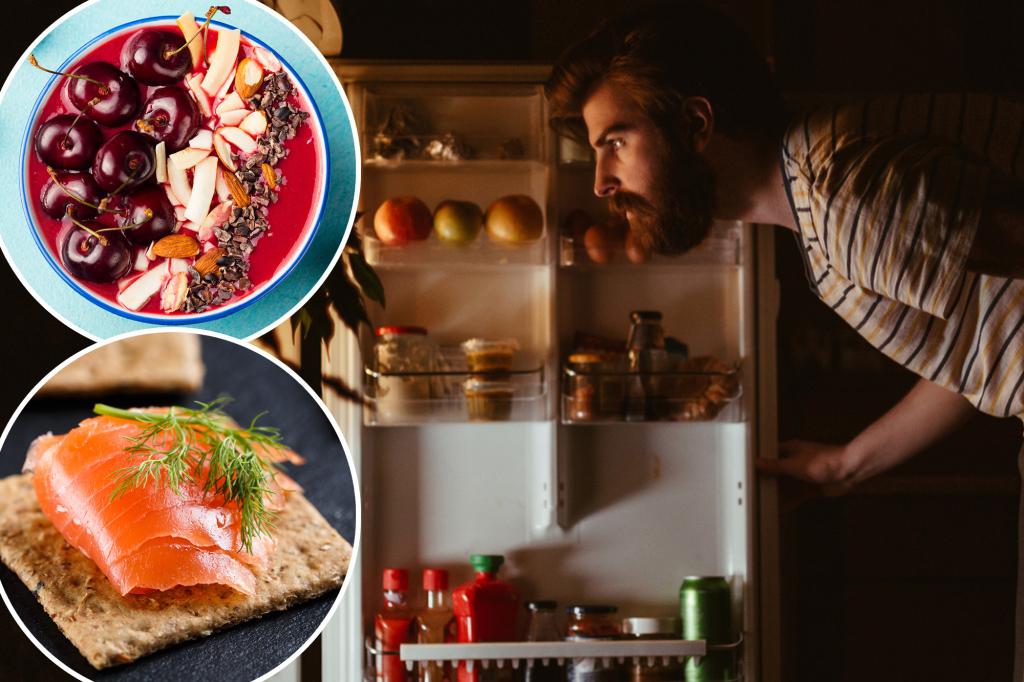
It’s breakfast time … somewhere.
Experts say it’s best not to eat right before bed — but if you’re hankering for a midnight snack, choose your nocturnal noshes wisely.
Registered dietitian nutritionist Felicia Stoler recommends seeking out items that include the three primary macronutrients — fat, carbohydrates and protein.
“Yogurt, milk (plain or flavored), cottage cheese and nut butters are examples of ideal late-night foods because they have all three macronutrients, are easily digestible (meaning they spend the least amount of time in your stomach and can be easily absorbed into the bloodstream to maintain overnight blood glucose levels),” she told PureWow last week.
Stoler admits that eating late is “inherently problematic,” but certain foods aren’t so bad, especially in small portions. She advises avoiding anything high in fat, sugar, spice, seasoning and acid content.
“Late-night foods should not spend too much time in the stomach [because they can] potentially cause reflux,” Stoler noted.
Registered dietitian Bianca Tamburello, meanwhile, suggests consuming foods that include a substance known for supporting heart, muscle, and bone health.
“Magnesium, found in nuts, seeds, spinach and tart cherry juice, may improve sleep quality so that you feel more rested and may help you fall asleep faster,” Tamburello told Real Simple last week.
She also endorses foods that contain chemicals like tryptophan and melatonin, which can better your slumber.
“Tryptophan, which is often associated with turkey, but also found in dairy, chicken and fish, can help boost serotonin levels to positively impact sleep,” Tamburello explained.
As for melatonin sources, consider drinking cherry juice or eating oats and grapes.
Almonds and walnuts — two fiber-filled foods — along with fruits and vegetables, can be quality late-night snacks as well.
Foods rich in antioxidants and omega-3 fatty acids — think nuts, seeds, fruits and vegetables — also make the cut, along with Vitamin D-rich entrees like salmon, tuna and eggs.
And when should the kitchen close for the night? The Cleveland Clinic says three hours before bed.
Stoler is less strict with her answer.
“The idea of not eating after a certain time has to do with the position of the head, neck and stomach, especially for people with reflux,” she told PureWow.
“You want all contents out of your stomach pouch by the time you lay down,” she added. “This is why high fat, high protein and big chunks of food are not ideal, because they take longer to leave the stomach.”
Healthier late-night bites to try
- Popcorn
- Almonds and walnuts
- Smoked salmon
- Yogurt with granola
- Hummus with crackers or vegetables
- Oatmeal
- Peanut butter and jelly sandwich
- Eggs
- Pumpkin seeds
- Beef jerky
